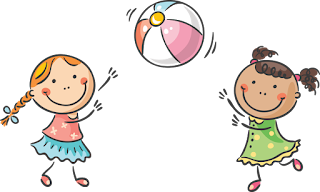Fact: Not talking about periods creates confusion, oppression, and societal harm.
It is important to talk about menstrual health, society has for too long made it a taboo.
Menstruation, despite being a completely natural and common occurrence for young girls and women for as long as our species has existed is one of the most misunderstood and feared phenomena.
MANY girls believe that periods are a burden to be borne every month, silently and in shame. Society is complicit in teaching girls that menstruation is a dirty little secret. The messaging about periods is that they are best suffered quietly and that they are certainly not appropriate for polite conversation.
 |
| Normalise Menstruation - by Hey Ellen |
It is critical for both girls and boys to know that having your period is a natural and important part of growing up.
So we have provided ideas for parents, guardians, teachers, and guidance counselors. Don’t be afraid of talking about periods, sharing information and advice is the best way to understand your period and have a happy month!
Firstly what is a period?
It is important to have a discussion with your child on the female reproductive system!
A first period (also known as menarche) is a special event! Spend time with your child to celebrate the start of a new chapter in their life. Sharing knowledge and experience is important to help your them feel comfortable and confident about the changes that are happening to their body.
Your period is blood passing out of your womb as part of a natural process to prepare your body for pregnancy. Now that your body is changing you can get pregnant, (and just before your first period too).
Your period happens once a month, and usually lasts between 2-7 days, but it may take a few months for your period to be regular and predictable, the first few may be light and irregular. You may find it useful to keep track of your period each month, to see when it is due and when it arrives. You can use an easy Period App such as Clue.
Reassure
 Preparing with correct and updated information for the first period can prevent worry. Let them know it is normal and natural and that they can still enjoy their childhood if they want to. Just because their period arrived, does not mean they want to be rushed into becoming an adult.
Preparing with correct and updated information for the first period can prevent worry. Let them know it is normal and natural and that they can still enjoy their childhood if they want to. Just because their period arrived, does not mean they want to be rushed into becoming an adult.
Share
Talk from experience, let them know that all menstruating teenagers go through it, and you did too. Show her the menstrual health products available, how to use them and let her choose the one she feels most comfortable with.
Know the facts
It is as simple as researching online and reading up on the facts! Pass on the knowledge!
Menstrual management can be essential in ensuring that your child's everyday life is not interrupted by menstruation.
It ensures that your child can continue with her daily routine such as going to school, going to work or doing household chores. It can also prevent potential situations of embarrassment and in turn, make them feel confident about herself and her body. In this sense, maintaining proper menstrual health is important for her wellbeing and development.
Not only is this post focusing on what girls and women should do, but young boys and men have a responsibility to learn about menstrual cycles (which we shall discuss in part two).
We believe that every girl should have access to safe, affordable menstrual products.
Every girl should also learn that her period is a natural even a phenomenal bodily process.
Every girl should learn that their period is not a monthly curse and certainly nothing to be ashamed of. PERIOD.


Comments
Post a Comment